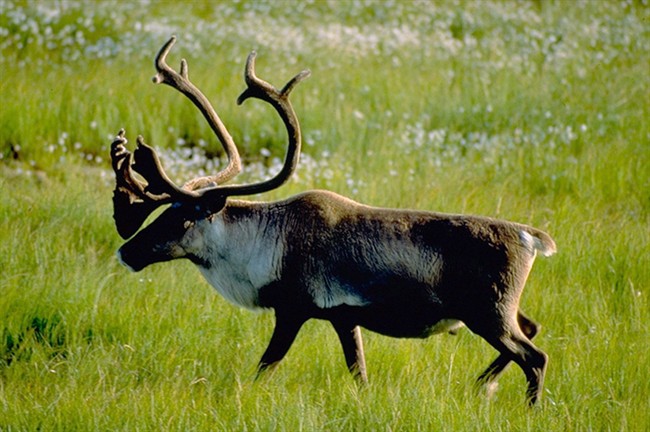With both the provincial government and Ottawa expected to implement a plan to help the boreal woodland caribou population recover in northern Alberta, a committee representing a half-dozen municipalities in the northwestern part of the province is weighing in on the matter.

The Northwest Species at Risk Committee (NWSAR) – made up of councillors from municipalities in northwest Alberta – released a draft recommendations report last week calling for governments to consider the potential negative economic impact some population recovery measures could have on the region.
“The NWSAR found that there would be major socio-economic impacts to the North Peace Country region if a provincial or national park were established – effectively sterilizing the area’s natural resources,” the committee said in a news release. The concern is in reference to a report authored by Eric Denhoff – released in May 2016 – which floated the idea of allowing proposed protection areas to become large new parks.
The group says parks previously established to protect certain animal species have not increased populations.
The NWSAR says it fears a park would threaten hundreds of jobs in the forestry sector and negatively impact the oil and gas industry as well.
READ MORE: Alberta backs off energy leases on caribou range
“We want to see a balanced approach for caribou recovery in the northwest,” Lisa Wardley, chair of the NWSAR and deputy reeve of Mackenzie County, said in a statement. “Practical solutions that involve local industry, traditional knowledge and local stakeholder input, so we can have sustainable and vibrant communities.”
Watch below: Lisa Wardley, chair of the NWSAR and deputy reeve of Mackenzie County, speaks about draft recommendations report on caribou recovery plan in a video posted to the Mackenzie County Facebook page.

Get weekly money news
The NWSAR is made up of municipal councillors from Mackenzie County, the County of Northern Lights, the Town of High Level, the Town of Rainbow Lake, Clear Hills County and the Town of Manning.
The Alberta government has vowed to partner with the oil and gas industry to try and reverse the decline of the province’s caribou population. The Notley government has said over the next several years, it plans to try and restore 10,000 “linear kilometres of land” that was previously cleared for seismic lines within the Little Smoky and A La Peche caribou ranges.
READ MORE: Alberta ‘moving forward on restoration efforts’ to address dwindling caribou population
Watch below: On Oct. 22, 2015, Global News spoke with a representative from Boreal Manitoba about the Manitoba government’s strategy to prevent woodland caribou populations from local extinction.
Under the federal Species At Risk Act, the Alberta government needs to come up with range plans and recovery strategies for caribou herds by the fall which the federal government will then either adopt or reject.
Boreal woodland caribou are considered to be in danger across Canada. In Alberta, development over the past few decades has seen numbers decline by about 60 per cent while some ranges are more than 80 per cent disturbed.
READ MORE: Lawsuit launched against Catherine McKenna over woodland caribou protection
Watch below: Global News’ 2013 coverage of the challenges faced by the caribou population in Jasper National Park.
In April, the Canadian Parks and Wilderness Society filed an application for judicial review in an attempt to sue Catherine McKenna, the federal environment minister, for failing to adequately report on the progress of caribou recovery plans.
View the NWSAR’s entire draft recommendations report below.
-With files from The Canadian Press








Comments